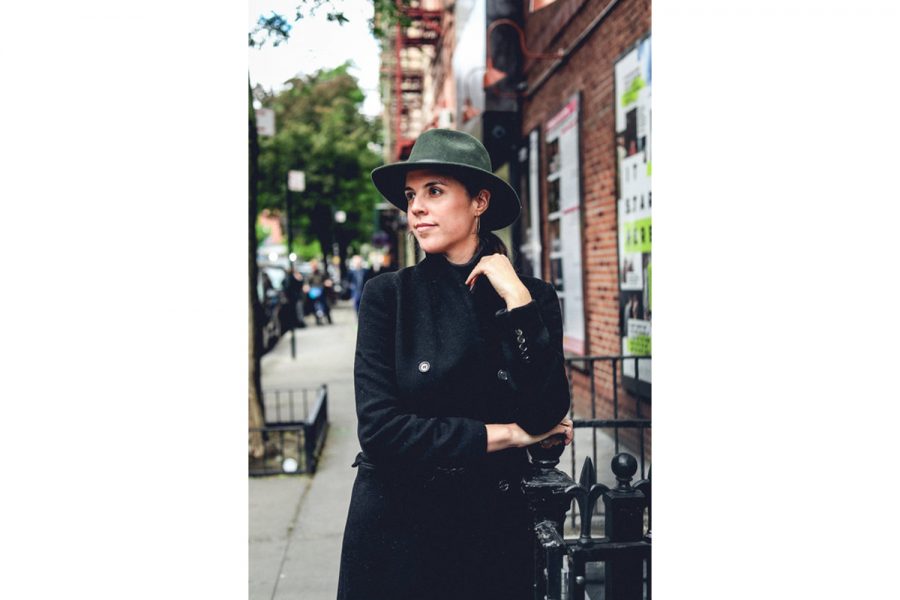Playwrights virtually return to the New Play Festival following its cancellation last year
Three playwrights participating in the annual New Play Festival share details about their work and how it was influenced by the COVID-19 pandemic.
April 29, 2021
This year, the Theatre Department is virtually hosting the annual New Play Festival, which allows graduate playwrights to present their work and get feedback from professionals.
The event was canceled last year because of the COVID-19 pandemic. As a result, playwrights who had begun writing their plays before the pandemic had to adjust to fit the festival’s virtual format.
Playwrights like Olivia Clemont began writing their plays during the pandemic. Clemont said that her play, The arrogance of it, was influenced by the pandemic’s effect on her.
“So much of the play deals with how solitude impacts one’s life,” Clemont said. “[The characters] are experiencing solitude in different ways for very different reasons. I think being in Iowa during the pandemic and having so much solitude in this very quiet place seeped into the play.”
The arrogance of it follows two neighbors in Iowa City with clashing personalities. One character is an elderly Iowa resident, and the other is a woman in her 30s who recently moved to Iowa City from Australia.
Clemont herself was born in France but grew up primarily in Australia. She said her international roots always play a role in her work.
“I think in all my writing I’m really interested in making global connections and looking at where you’re from and how that shapes you as a person and then shapes the kinds of relationships you have with people from other cultures,” Clemont said.
While Clemont incorporates her point of view into all of her work, she said The arrogance of it shows parts of herself that haven’t been highlighted in previous works.
“I think the play is a little bit more raw and messier than what I’m used to sharing,” Clemont said. “But I really appreciate that as well because it’s a reflection of the time and place that I wrote it. I see it as a bit of a time capsule in that way.”
Playwright Dakota Parobek, who will present Blue Whale Variations at the festival, said they felt similarly to Clemont while writing their play during the pandemic.
“The play is definitely informed by the distance and detachment we were all facing at that time,” they said.
Blue Whale Variations is a non-linear immersive audio play that follows two parallel stories — one about a daughter and father coping with loss, and another following the people moving into the duo’s former home.
Scenes from the play will be activated when the listener reaches GPS locations in the Theatre Building, and the scenes don’t have a particular order.
RELATED: UI Theatre and Cinematic Arts departments reflect on centering diversity in their programs
“It’s really about going through and making your own story depending on which order you hear the scenes in,” Parobek said.
Parobek said they wanted to create an immersive experience to break up the monotony of watching recorded plays online.
“It came from a place of kind of being over Zoom plays and Zoom theater,” they said. “Looking at a screen is identical to watching TV shows and movies and it takes away the qualities that really make theater, theater.”
Playwright Charlie O’Leary also opted for an audio experience for his play, The Switch, in which he describes as a gay podcast version of his favorite childhood movie, Freaky Friday (2003). O’Leary said he wants audience members to be aware that his play contains graphic descriptions of sexual violence.
O’Leary began writing the play as a solo performance in 2019, which he later changed to a podcast format due to COVID-19 safety restrictions.
He said that his play explores power dynamics and the duality of self and is an honest look at his thoughts and experiences a gay man.
“I’m really interested in this idea of duality, like what happens when two people exist in one body?” O’Leary said. “What happens when it feels like you’ve swapped bodies with yourself? What happens when it feels like there are two people inside of you?”
O’Leary experienced feeling that there were two versions of himself while he was closeted. After coming out, he still felt that the metaphorical closet was a space where he stored his shame.
“I think that the danger of keeping this like closet space is that if you have a private space where anything shameful is OK, what could potentially happen in that space?” O’Leary said.
He was able to explore his feelings of shame through examining sexual experiences and the power dynamics and fantasies that come with them.
“I think there’s a lot of similarities between kink play and theater,” O’Leary said. “I think that both are sort of like fantasy spaces where people work out their traumas and questions about the world and about themselves in a sort of safe, contained space.”
O’Leary said he wanted to share his point of view in an honest way, but that point of view was informed by a traumatic experience which is described in detail in the play.
He said he hopes to tell the story that his play centers around truthfully without resurfacing trauma that audience members may have surrounding sexual violence.
“I think I found myself asking, ‘Why am I so interested in telling this story? What am I getting out of this? What is an audience getting out of this? And is it even ethical to expose people to something that’s dark?’ And those are questions I’m still grappling with,” he said.
Information about how each play can be viewed will be updated when available. Follow The Daily Iowan for updates.


















